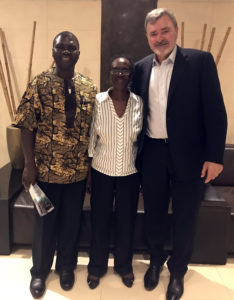
Sustainable Skills CEO, Nigel Carpenter, with Mary Jo Kakinda and Simon Peter Nangabo, Associate Consultants for the Uganda Project, Kampala, February 2018.
This is our first newsletter of 2018 and we hope you had a great Christmas and a fantastic celebration of the New Year. 2018 promises to be a big year for Sustainable Skills, with a number of strategic projects started in 2017 that we are confident will convert to business opportunities over the course of this year.
In late January, I travelled to Indonesia to visit the Ministry of Manpower’s BBPLK Polytechnic Bekasi, which is currently implementing a revitalisation plan with a strong focus on industry, and we hope Sustainable Skills will have the opportunity to help designing an efficient, industry-led vocational education system. During this trip I held a number of meetings with Indonesian government departments and organisations with the focus on developing TVET to improve skills outcomes and increase job opportunities. Indonesia wants to improve its TVET system. During March I will be visiting the site for a new TVET Centre of Excellence where we have been asked to advise on how the Centre of Excellence can improve TVET outcomes.
Between 5 and 8 February, I travelled to Cape Town to attend Mining Indaba, the World’s Largest Mining Investment Conference and the Largest Mining Event in Africa. For over 20 years, this event collected mining companies, investors and other stakeholders from around the world, and is dedicated to supporting education, career development, sustainable development, and other important causes in Africa.
Mining Indaba presented the opportunity to meet with international key stakeholders including governments, donors, organisations, mining companies, and delegations from Europe, America, Canada, Uganda, Zambia, Mozambique, Kenya, Ghana as well as the Intergovernmental Forum.
The second part of my trip to Africa brought me to Kenya to meet with representatives of the Nairobi City Water and Sewerage Company, which is looking for support to build the capacity of 3000 local workforce.
In Nairobi I had the chance to meet with TVETA and discuss about the opportunity to help Kenya developing a world standard TVET education system based on industry engagement. Sustainable Skills is looking forward to helping the new Mining Institute’s Committee with the objective of developing TVET to ensure locals have the skills industry needs. This followed a meeting with the Director General of TVETA who is revitalising TVET which is based on Australia’s systems and frameworks.
I moved from Kenya to Ethiopia, where the growing population needs jobs and skills. I met with the Ministry of Education and TVET Institute and have helped develop plans to improve the knowledge of teachers and lecturers.
As for a number of countries in the area, Ethiopia’s TVET system is also based on Australia’s.
I took the opportunity of my trip to Africa to meet our Kampala based team of exceptionally-qualified local consultants who are delivering our Due Diligence and Technical Evaluation project for employer-led short term training to address prevailing skills imbalances and shortages in Uganda. We’re working with the Skills Development Facility and Private Sector Foundation Uganda with the project sponsored by the World Bank. Our local team is currently formed by Mary Jo Kakinda and Simon Peter Nangabo and will increase to 3, based in Kampala, within the next few weeks. In the “Meet the Team” section of this newsletter we are proud to introduce Mary Jo Kakinda, Associate Consultant for the project.
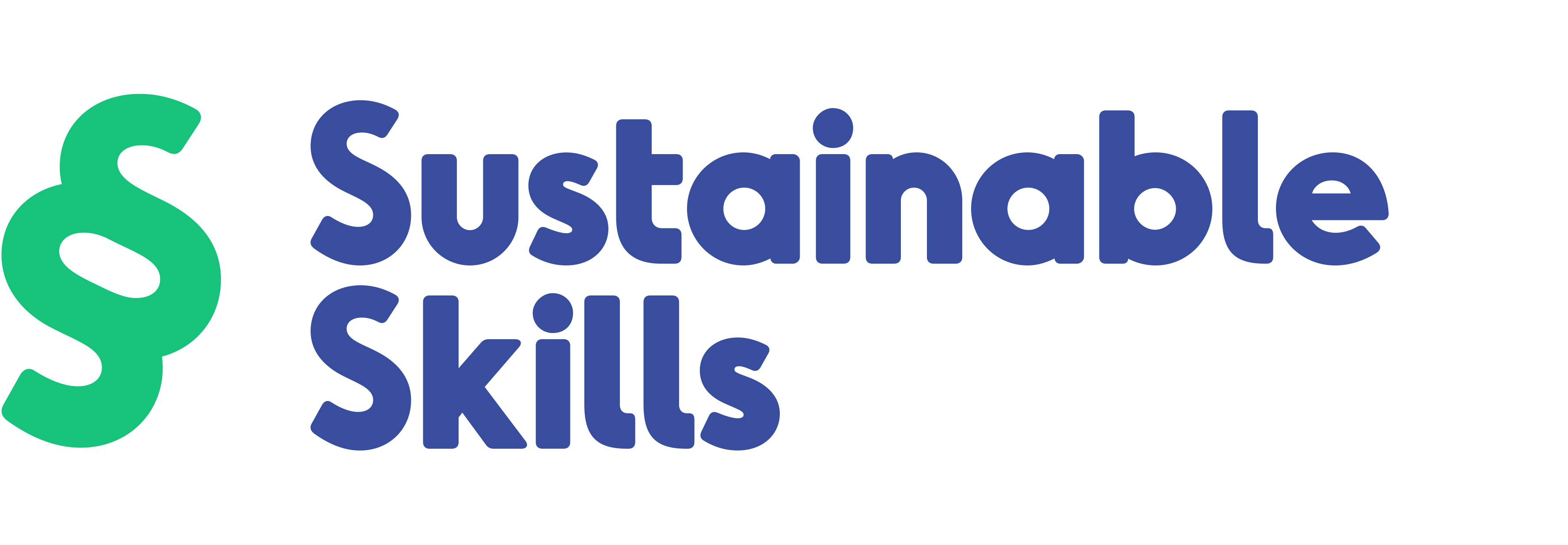

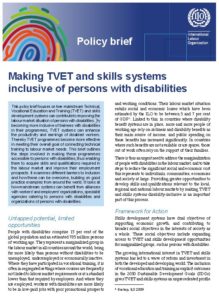
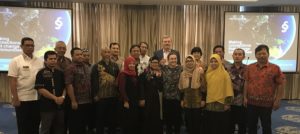
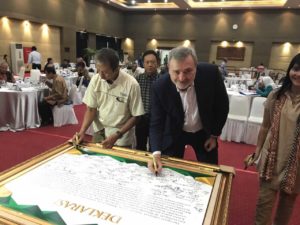

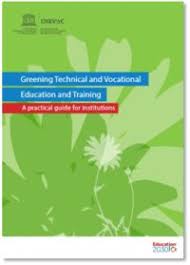
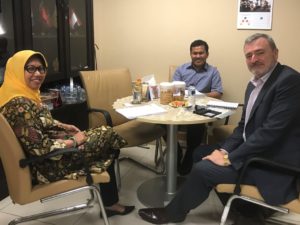

 “The Global Trends in TVET: a framework for social justice” report has been officially launched in Australia on 20 October 2017 at the “The future of public TAFE institutions – new social policy” conference organised in Sydney by the
“The Global Trends in TVET: a framework for social justice” report has been officially launched in Australia on 20 October 2017 at the “The future of public TAFE institutions – new social policy” conference organised in Sydney by the 

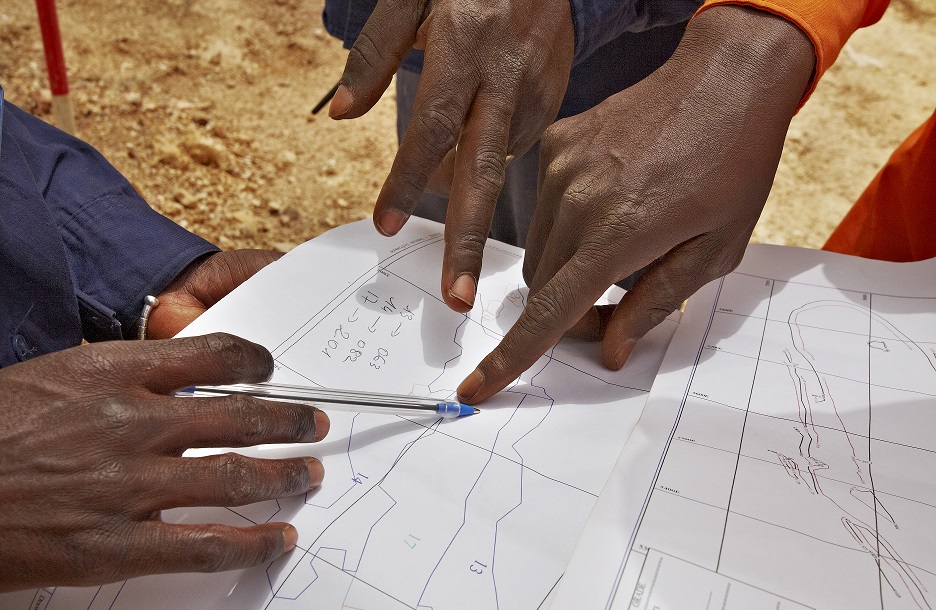
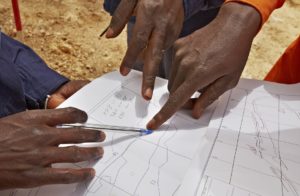 Last month Sustainable Skills has been officially awarded a consultancy contract sponsored by the World Bank to address skills imbalances and shortages in Uganda. Client of the contract is the Private Sector Foundation Uganda (PSFU) and this is the first non Australian government contract in the history of Sustainable Skills/SkillsDMC.
Last month Sustainable Skills has been officially awarded a consultancy contract sponsored by the World Bank to address skills imbalances and shortages in Uganda. Client of the contract is the Private Sector Foundation Uganda (PSFU) and this is the first non Australian government contract in the history of Sustainable Skills/SkillsDMC.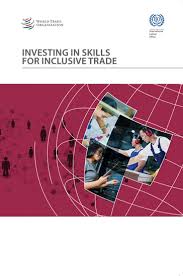 ILO and WTO have recently co-published the book: “Investing in Skills for Inclusive Trade” focused on the linkages between trade and skills and between trade and skills development policies. The publication has been presented on 4 July during a conference at the WTO headquarter in Geneva by Roberto Azevêdo and Guy Ryder, respectively WTO and ILO Director-General.
ILO and WTO have recently co-published the book: “Investing in Skills for Inclusive Trade” focused on the linkages between trade and skills and between trade and skills development policies. The publication has been presented on 4 July during a conference at the WTO headquarter in Geneva by Roberto Azevêdo and Guy Ryder, respectively WTO and ILO Director-General.